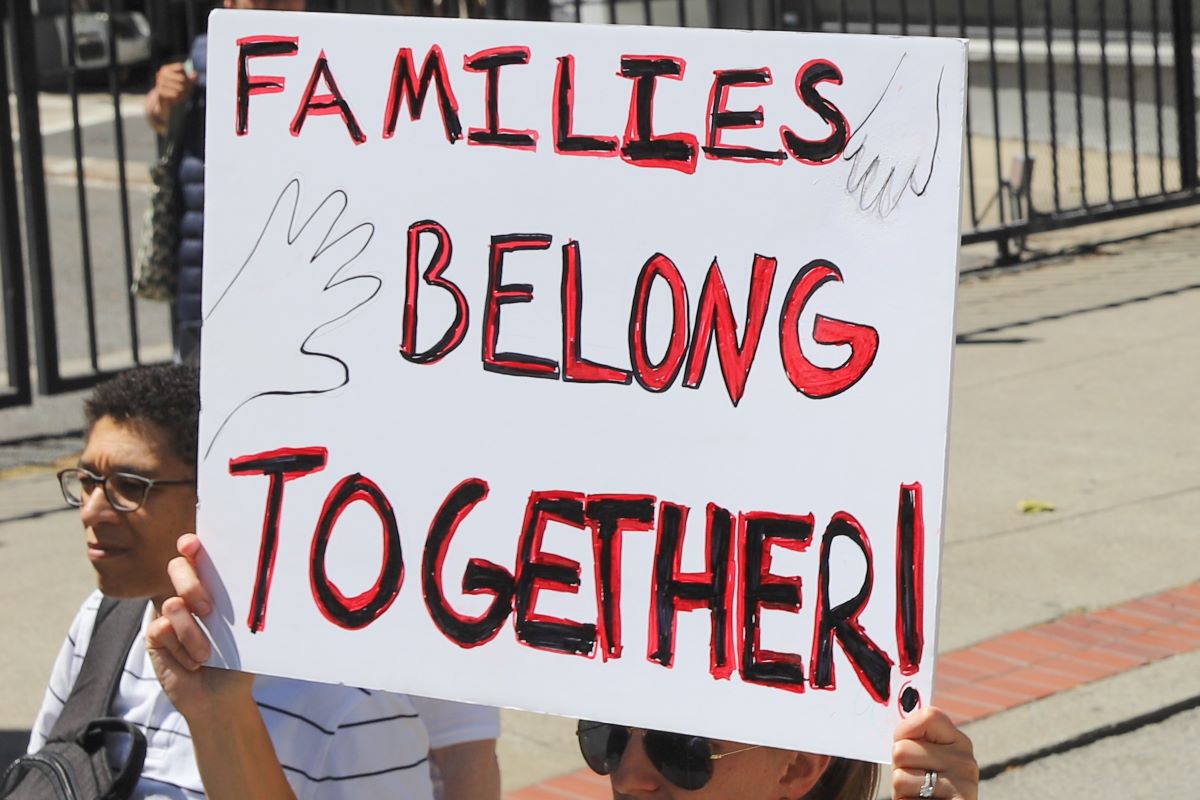Georgia Spends Millions on Foster Care Rather than Provide Housing to Families in Need
Ripping children away from their biological parents simply because they can’t afford to pay rent is unfathomably cruel, but paying thousands of dollars a month to another family to do it is downright sinister. Read on to find out why this is happening in Georgia.
Family Separation: When the Price of Poverty is Your Children
Georgia resident Brittany Wise checks all the boxes when it comes to discrimination. The 35-year-old single mother of eight told reporters at ProPublica that she fled to Georgia to escape domestic violence inflicted by her partner in 2021. She soon learned that her job as a fast-food employee couldn’t nearly cover the amount she needed to rent an adequate-sized townhome, even when she juggled multiple side hustles and sought financial assistance.
By April 2023, just two years after leaving her abusive partner, Brittany was at her wit’s end. She was swimming in $10,000 worth of back rent and utility arrears. She also had an unpaid traffic ticket, which was the last thing on her mind, given the extenuating circumstances.
When a police officer stopped Brittany for driving with an expired tag, that ticket ultimately forced her to spend three days in a prison cell, which meant her children had to spend that time with the Georgia Division of Family and Children Services (DCFS). Ironically, the DCFS was the same organization that refused to help Brittany with housing assistance earlier that year.
If you’re versed in housing and discrimination advocacy, you might already be aware of the fact that African Americans like Brittany Wise are disproportionately more likely to be arrested for low-level traffic offenses like having an unpaid ticket. Even more tragically, they are disproportionately more likely to have their children taken away from them for circumstances outside of their control, such as the lack of affordable housing.
Herein, we find a situation where both things occurred simultaneously. Perhaps more shockingly, there are 700 cases strikingly similar to Brittany’s in Georgia alone.
Today, I sat down with adolescent crisis specialist and former educator Bruce Anthony Lockett, who possesses 15 years of experience working with struggling inner-city youths, to get his take on the topic.
“I think this is absolutely outrageous,” said Bruce. “This might sound like an extreme example, but I really believe that it’s very similar to how the Transatlantic slave trade in America separated parents (particularly African American parents) from their children.”
“Family serves a communal purpose,” he continued. “It gives children a sense of identity and belonging that is pivotal to their early childhood development. How could a government be pouring more money into a program that prioritizes children living with strangers in an uncertain and unfamiliar environment over children residing with their biological parents in a safe and permanent home?”
“It doesn’t make sense from many different angles,” Bruce said. “It doesn’t make sense monetarily or socially. We already know that splitting up homes destroys entire communities. We already know that parent-child separation is one of the most traumatic things a person can live through, and it creates adverse mental health effects that can span lifetimes, generations even. We already know that this disconnects the child from their community, their culture, even their physical medical history.”
“It doesn’t make sense not to help the parents find affordable housing, unless the goal, and I hate to suggest this, but unless the goal was breaking up the family unit,” he concluded.
Georgia Spends Tens of Millions of Dollars to Separate Unhoused Children from Their Parents
Housing them would be a fraction of that price.
An in-depth investigation conducted by ProPublica reporters reveals an eye-opening truth. Georgia is currently spending tens of millions of dollars to separate unhoused children from their biological parents, and they are doing so on the taxpayer’s dime.
See below for a brief overview of those expenses:
- Foster care costs the Georgia government anywhere from $830 to $980 per month per child. In Brittany’s particular case, that price amounts to nearly $6,200 per month due to the number of children and the fact that some of her children have special needs.
- Foster care for children with special needs can cost upwards of $1,500, and that’s not even per month. That’s per night!
- While they are willing to fork over astronomical amounts toward temporary placements and foster care, the DCFS spends an embarrassing .05% (less than 1% total) of their $450 million budget on services that aim to keep families together.
Lack of Affordable Housing is the Third-Leading Cause of Family Separation in Georgia
This study reveals the shameful fact that lack of affordable housing is currently the third-leading cause of children being separated from their biological parents in the state of Georgia.
In at least 700 instances identified by the investigative team, the lack of affordable housing was the only reason these children were ripped from their parents’ loving arms and thrust into the unrelenting foster system, a system that will make those same children even more vulnerable to homelessness in young adulthood.
“If you claim #familyvalues, you should support policies that value families, like housing assistance,” said National Homelessness Law Center’s Eric Tars on X (formerly Twitter).
Talk to Your Representatives About Keeping Families Together by Giving them Access to Affordable Housing
The United Nations and the world agree that America’s handling of the homeless crisis is ineffective, expensive, and inhumane. Please join the chorus of voices lifting up around the globe to support our homeless neighbors. These families should have every right to remain together, and that dream is only possible if we make housing an irrevocable human right. Talk to your representatives today.













